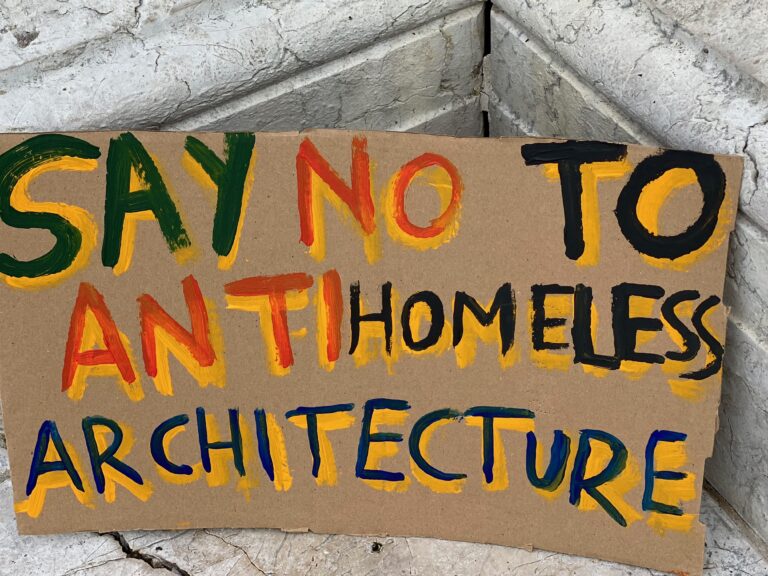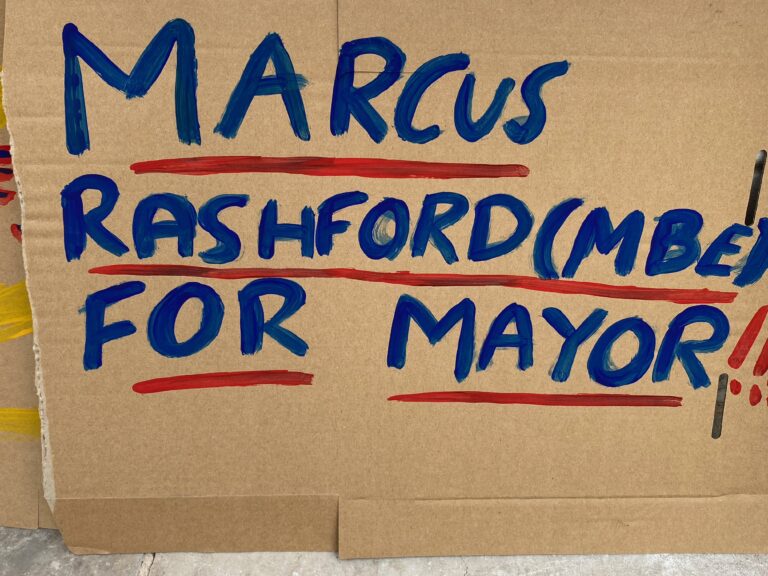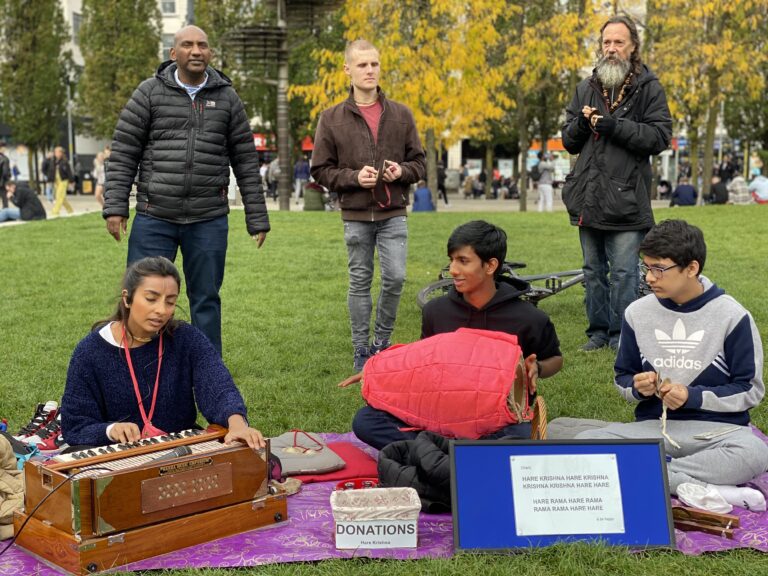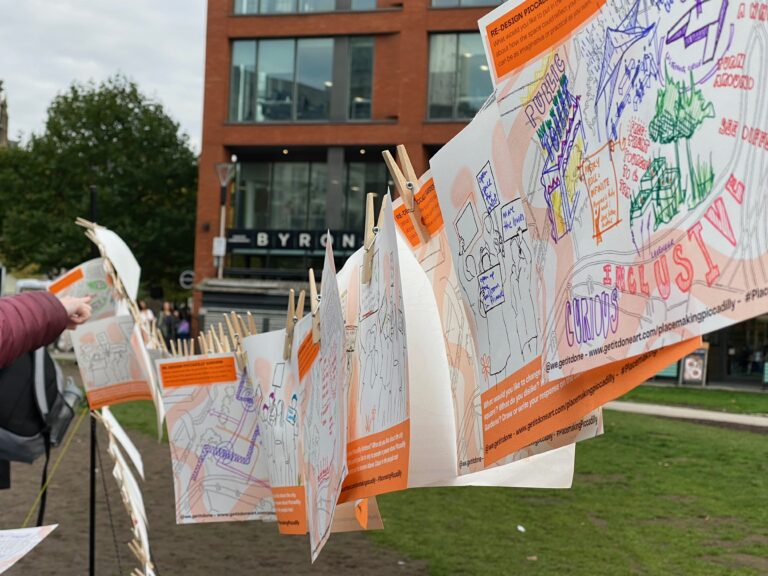I enthusiastically strolled down to Piccadilly Gardens on Saturday 16 October to see the citizens of Manchester take control of this busy central public plaza. After my disappointment seven years earlier when I first arrived in Manchester and viewed the gardens, this now felt like some headway was being made to truly make this the “heart and soul” of central Manchester. Today was the day that the People’s Takeover of Piccadilly was starting.
As I entered Piccadilly Gardens on Takeover day, “People make places, more than places make people”, a comment in a report by the Joseph Rowntree Foundation called Social Value of Public Spaces, came to mind.
In addition to the all-day People’s Takeover activities, there were children enjoying the playground, several different groups working together to show support for refugees, as well as singing Hare Krishna followers handing out pamphlets. This is a place that is important to the people of Manchester, but the social problems of homelessness, litter throwing, drug dealing, along with the muddy grass and dull grey façade make it feel uncomfortable to many, and at times a place to be avoided.
The People’s Takeover of Piccadilly Gardens
“This is a start of a conversation. In a couple of months, we will get everyone together, bring together content, ideas, and thoughts and then work out ‘what do we ask for?’ and ‘how do we make it happen?’,” said Mathew Stallard, chair of trustees at Manchester Central Foodbank. The foodbank along with Get it Done organised Saturday’s event along with other actions working towards this goal.
Activities on the day included, a creative “design your dream Piccadilly Gardens” drop-in space, an Invisible City alternative walking tour utilising the knowledge of guides who had previously experienced homelessness, discussion circles, and the celebration of a community tapestry created by architectural designer Freya Bruce with input from the community.

Concerns
Mimi Dearing, director of Get It Done is concerned that the outcome from the city council run public conversation about the Gardens will result on an aesthetics focused “pretty space” which will look nice but ends up “pushing the problems out” rather than remedying them. She feels that the new Piccadilly Gardens needs to address the needs of many, including those with financial difficulties as, “They are also valid citizens of the city…the space needs to be welcoming and inclusive to everyone…not just ‘pretty’.”
She gave an example of the popular fountain and how nice the multi-coloured lights look at night but “there also has to be a priority to safety… as the rest of the park is very dark at night and women feel unsafe walking through it. There has to be a balance between what looks good versus the needs of the citizens.”
At the discussion circle, views included the need to have a combination of historical and contemporary landscape architecture along with music, art displays, interactive activities, a stage for live performance, something to pull students away from the Oxford corridor, and activities and displays that bring cultures together and are good for mental health. Keep the fountain, add flowers, add more benches, remove the feeling of a mud wasteland, and add toilets.
Speaking at the event Morag Rose, representing the Loiters Resistance Movement feels that there are three ways that make public spaces genuinely public.
First, the material design – taking into consideration seating, wheelchairs, baby buggies, suitcases. She feels that accessible design should be the standard as “no one is harmed by accessible design”.
Second, the cultural design of the space. Rose says that “different people have different needs” and places should be inclusive with no one feeling excluded or harassed.
Thirdly, ownership. The garden was given to the city in the 18th century by the Mosley family in perpetuity as long as it stayed a public space. She mentioned that 11% was already given over to development and that we need to “claim our place in the city and not give any more. It is a place to connect, feel better, and belong. It is the beating heart of our city with connection and value.”
Rose believes that gender neutral, accessible, hygienic, free toilets are a fundamental human right. The need for a toilet is the great human leveller and that there is something wrong with people having to plan their day around available toilets or having to spend money to access one. “We just don’t talk about it. We need to talk a lot more about shit rather than just talking shit,” said Rose.
Next Steps
Dearing, says that next there will be an interim town hall event, inviting all community groups to come up with a manifesto for making Piccadilly Gardens a people space. “We will be firm in our demands [to the council] on what we would like in the city space.”
Stallard sees October’s People’s Takeover as a start to work towards bringing in more groups with a diversity of ages, cultures, voices, and backgrounds into the design of public spaces. “The momentum has started…we need to kick the door down for everyone.”
The Meteor is a media co-operative on a mission to democratise the media in Manchester. To find out more – click here
Sign up to The Meteor mailing list – click here.
Featured image: Dale Anne McAulay








Leave a Reply